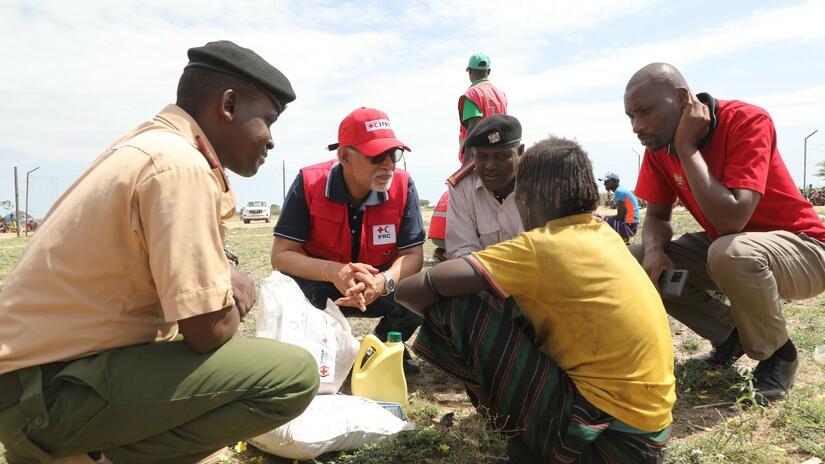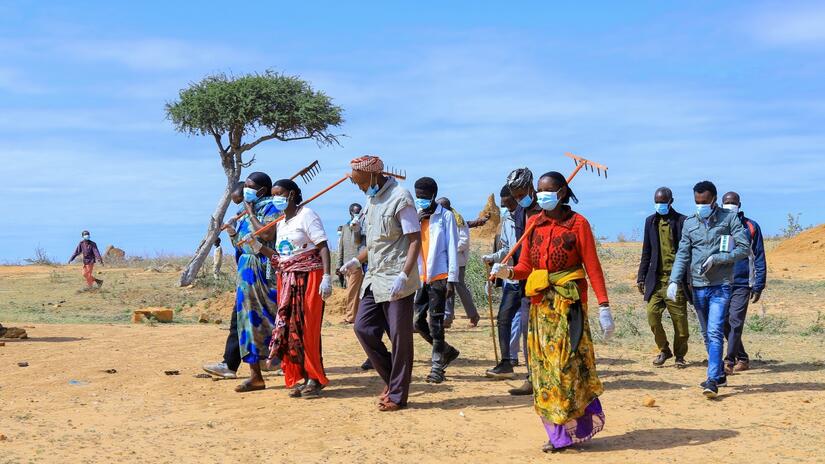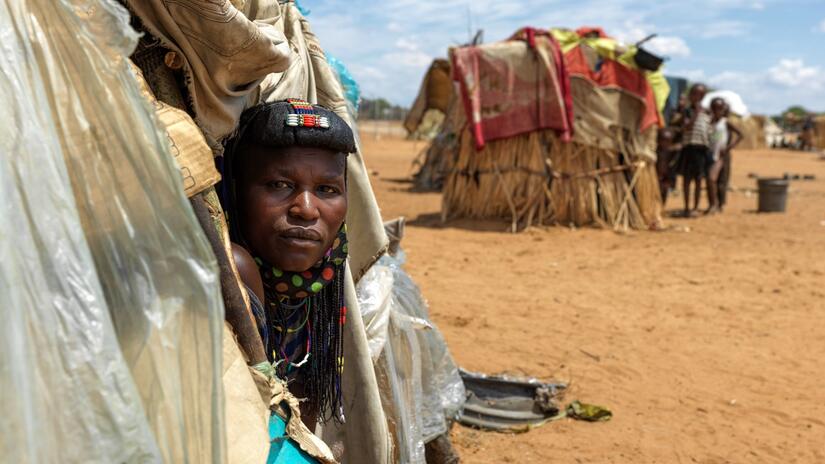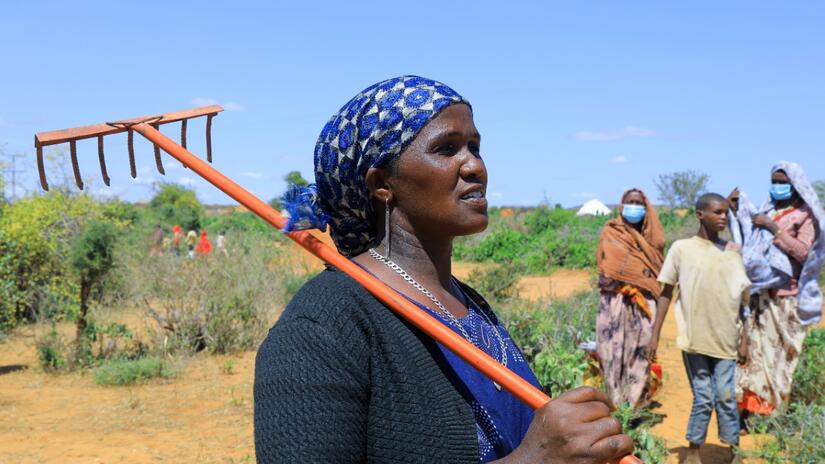Food insecurity is not a new phenomenon. But the recent escalation in severity and geographical spread of chronic hunger is serious cause for alarm.
The hunger crisis is most starkly felt on the African continent, where many regions, notably the Horn of Africa, Sahel and Lake Chad regions, are experiencing the worst food crisis in decades.
Millions of people are facing hunger across Africa—prompting the IFRC to launch Emergency Appeals for hunger crises in Nigeria, Somalia, Kenya, Ethiopia, Niger and Angola all within the past year.
Back in May, I met some of those affected while visiting drought-affected areas in Marsabit County, Kenya—where levels of malnutrition are among the highest on the continent.
I saw first-hand the level of suffering caused by a severe lack of rainfall over four consecutive seasons, coupled with pre-existing vulnerability in parts of the County. Children, young mothers and the elderly are most affected and facing near depletion of their livelihoods.

IFRC Secretary General, Jagan Chapagain, speaks to people in Marsabit, Kenya affected by drought during a distribution of food assistance by the Kenya Red Cross in May 2022.
Photo: Kenya Red Cross
Although this hunger crisis is, to a large extent, climate-induced, it is also driven by the effects of widespread locust swarms, disease outbreaks, conflict and insecurity, and economic slowdowns—including those triggered by COVID-19.
Furthermore, the ongoing conflict in Ukraine is disrupting the global trade of food, fertilizers and oil products, with prices of agricultural products reaching record highs. Eastern Africa, for instance, gets 90 per cent of its imported wheat from Russia and Ukraine (source: WFP), and the conflict has led to significant shortages. The Ukraine crisis has also diverted both the attention and resources from other crises.
While Ukraine is an extremely worrying crisis, affecting millions, we cannot afford to lose sight of other urgent crises around the world. Not least of which is the rapidly deteriorating food security situation in many parts of Africa. The clock is ticking and soon it may be too late to avert a widespread tragedy.
So the question that should concern us all is: what can we do, as a humanitarian collective, to avoid the tragic history of the early 1980s repeating itself?
We need urgent and massive action to scale up life-saving assistance to millions of people on the verge of collapsing, but also to decisively address the root causes of this crisis through longer term commitments.

Ethiopian Red Cross volunteers help communities in Moyale, Ethiopia dispose of dead livestock and clear water points to protect people's health. Recent prolonged drought has led to an increase in livestock deaths, widespread food insecurity, and displacement as people search for grasslands.
Photo: Ethiopian Red Cross Society/Berhanu Gezahegn
The IFRC has an important and unique role to play. With our unparalleled community reach and expertise, our 100+ years of humanitarian experience, our ability to act both locally and globally, and our National Societies’ special status as auxiliaries to public authorities—we can turn this tide. But we need the resources to do so.
Our collective immediate priority is to muster life-saving support, within and outside our IFRC network, for the next six months—paying particular attention to the Horn of Africa, Central Sahel and other hot spots across the continent.
During this emergency phase, we will focus our support on the things we know from experience will make the most difference to affected people’s lives and livelihoods: food assistance, cash programmes and nutrition support.
At the same time, we will develop longer-term programming, together with interested National Societies, to address the root causes of food insecurity. We will build on our previous successes and work in support of governments’ plans and frameworks to restore the resilience of the most impoverished communities, including displaced populations.
Everything we do will be underpinned by solid data and meaningful community engagement to ensure that our response is evidence-based and tailor-made.
Hunger is one of the most undignified sufferings of humanity. To alleviate human suffering, we must rise to this challenge through collective mobilization and action—both in the immediate and long-term.
We simply cannot afford to do too little, too late.

A woman from the Mucawana tribe in southern Angola peers out of her shelter home in Etunda refugee camp, Namibia, in May 2022. Drought had caused her crops to fail and livestock to die out, prompting her and her family to make the long trek to Namibia in search of food and water.
Photo: Namibia Red Cross
---
Since 2020:
- The IFRC network reached 4.8 million people with food assistance and non-food items, combining all humanitarian response operations (Emergency Appeals, DREFs and our COVID-19 response)
- More than 20 African National Societies have been implementing food security-related projects as part of their regular programming
- 33 African National Societies have increased their capacity to deliver cash and voucher assistance
Click here to learn more about the IFRC’s work in food security and livelihoods.
You may also be interested in reading:
- 'To beat Africa’s hunger crises, start with long-term planning' - opinion piece in Devex by IFRC Regional Director for Africa, Mohammed Omer Mukhier-Abuzein
- 'Because of hunger, I am here' - photo story from the Red Cross Red Crescent Magazine about Angolan refugees fleeing to Namibia due to the drought and resulting lack of food and water
And scroll down to learn more about our active Emergency Appeals for food insecurity in Africa and beyond.





